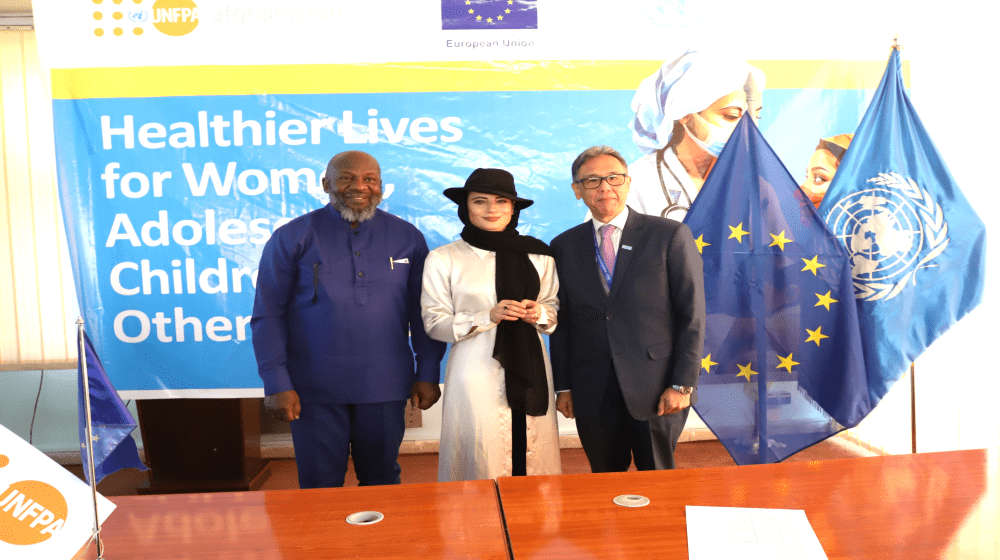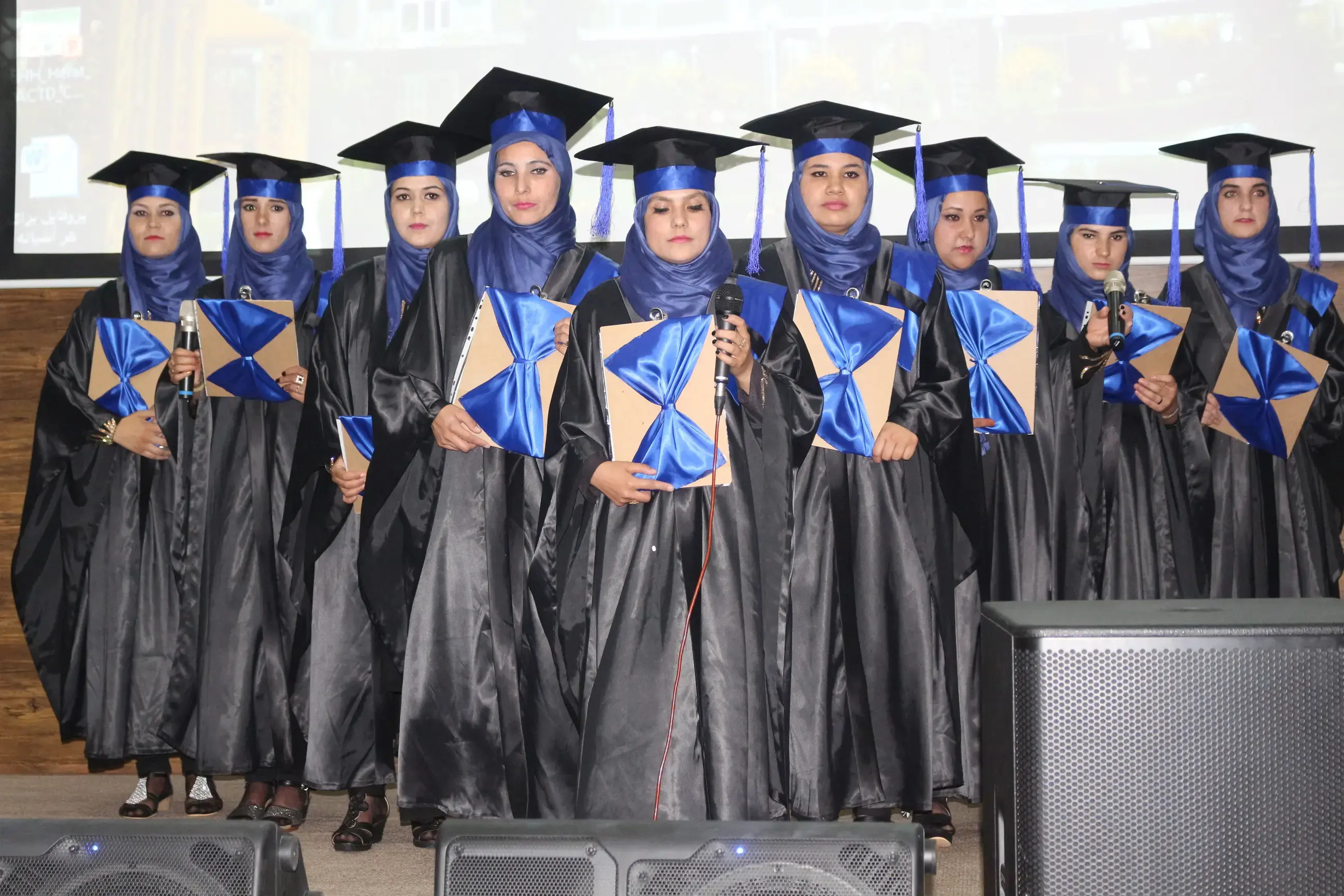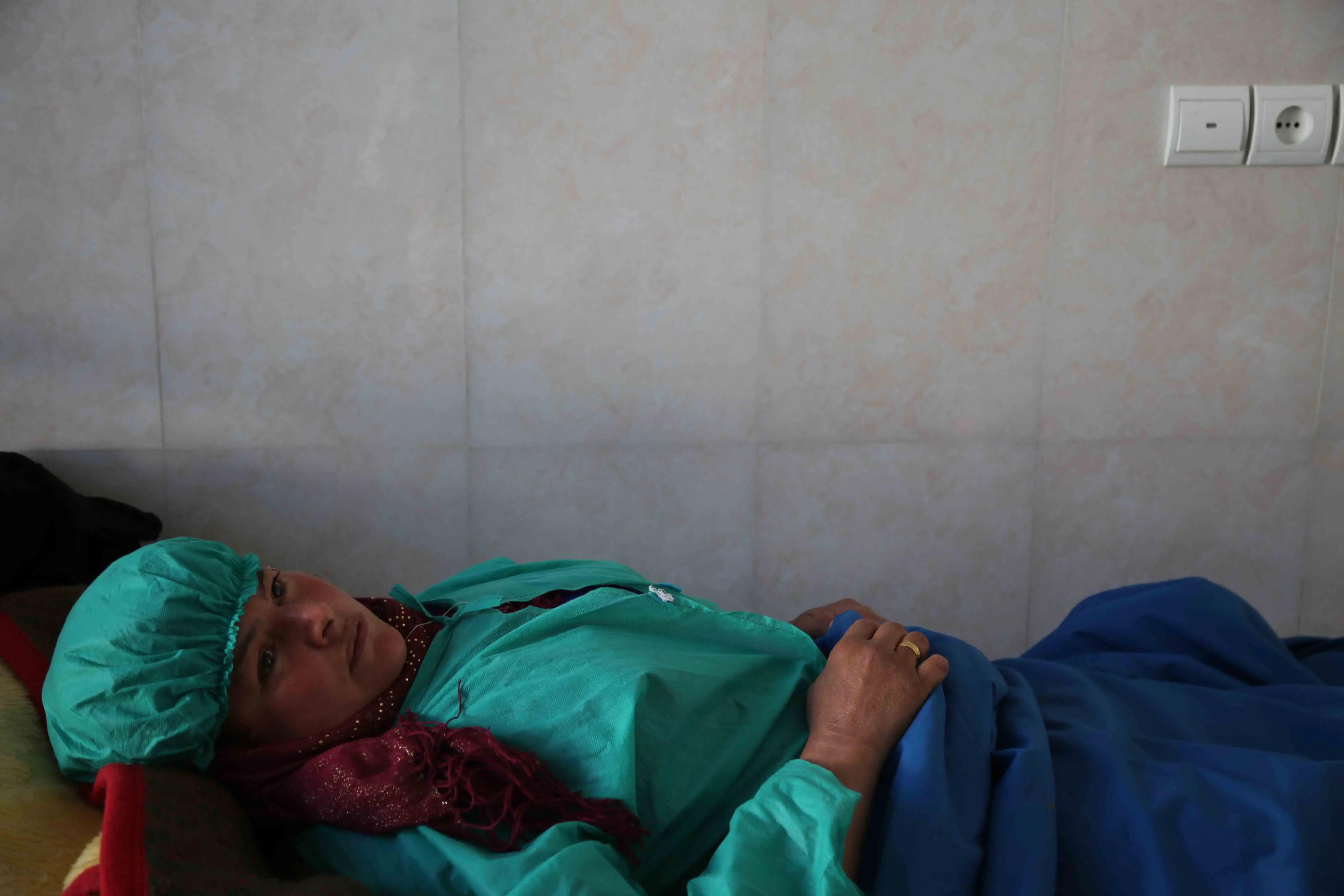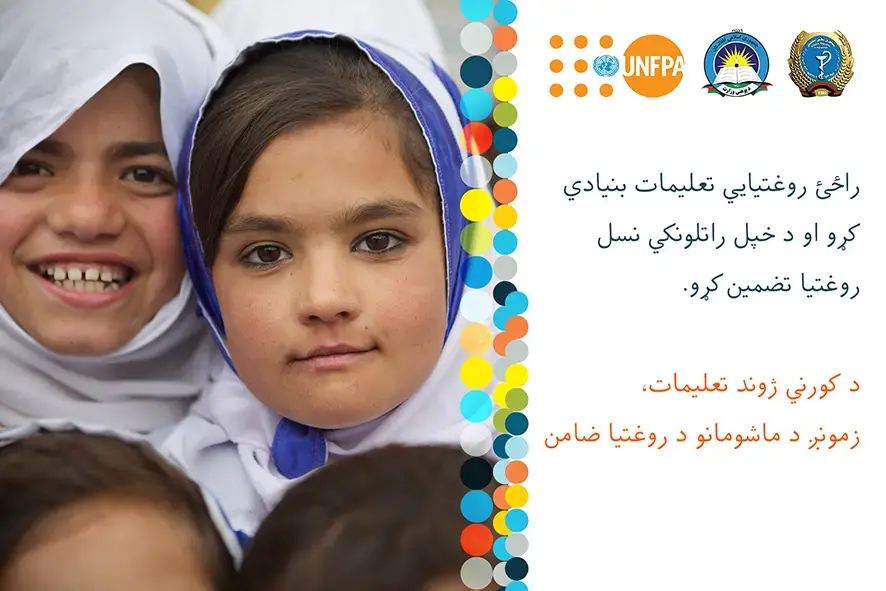Press Release
Afghanistan: the EU, in partnership with WHO and UNFPA, supports access to reproductive, maternal and child health and non-communicable diseases services
24 October 2024, Kabul, Afghanistan ̶ The European Union has allocated €16 million to the World Health Organization (WHO) and €15 million to the United Nations Population Fund (UNFPA) to improve the provision of quality health services for non-communicable diseases (NCDs), including cancer, and expand reproductive, maternal, neonatal, child and adolescent health services in Afghanistan.
Afghanistan faces significant challenges in providing basic health care services, especially for women, young people and those living in deprived areas. Basic health services are available to just 10% of women. Maternal, child and neonatal mortality rates are among the highest in the world. A mother’s life is lost to preventable complications related to pregnancy and childbirth every 2 hours, and 25% of Afghans live in hard to reach and underserved areas.
Afghanistan also faces an increasing burden of NCDs which account for almost 50% of all deaths, half of them women. These challenges, combined with limited financial resources and a scarcity of trained health professionals, place strains on the country’s fragile health system, impacting the availability and quality of services.
In response to these constraints, the EU has teamed up with UNFPA and WHO to help Afghan people access better health services.
“The EU's financial support, coupled with the technical expertise of WHO and UNFPA, ensures that health care reaches those who need it most, and that critical areas like reproductive health, maternal and child care, and the fight against chronic diseases are prioritized. We believe that with continued cooperation, built on trust, transparency and inclusivity, we can make a lasting impact on the health and well-being of Afghanistan’s most vulnerable, especially women and children,” said EU Chargée d’Affaires to Afghanistan Veronika Boskovic Pohar.
“With the new EU contribution, WHO will be able to enhance access to high-quality care for non-communicable diseases, including cancer, across 7 provinces in Afghanistan. By prioritizing inclusive and equitable health services, we are committed to ensuring that both men and women, especially in remote and underserved areas, receive the critical care they need for better health outcomes,” said WHO Representative in Afghanistan Dr Edwin Ceniza Salvador.
“With the EU’s trust, UNFPA looks forward to working with our local and international partners to reach over half a million of the country’s population, mostly women and girls. We are hereby strengthening the overall national health system through investing in community-based health services which are led by the community, for the community,” said UNFPA Country Representative in Afghanistan Mr Kwabena Asante-Ntiamoah.
The collaboration with UNFPA will improve access to quality reproductive, maternal, adolescent and child health services. It will expand the Family Health House (FHH) programme across the country to provide more comprehensive services to the most vulnerable, including immunisation, nutrition, psychosocial support and female cancer screening. In addition, it will provide support to the operationalization of two Midwifery-Led Maternity Care Centers. Alongside the provision of quality medicines and supplies, the skills and competences of health staff, especially midwives, will be strengthened, and young people will be provided with integrated services comprising health, nutrition, life skills, psychosocial support and vocational training through Multipurpose Youth Centres (MYCs).
Through its partnership with WHO, EU support will enhance and expand screening, diagnostic, treatment and palliative care services for NCD patients at the national and provincial level. It will address the shortage of health care workers, particularly those trained in NCD and cancer care, and ensure they have the skills to serve all communities. The intervention will also strengthen the National Cancer Diagnostic and Treatment Hospital in Kabul, including the provision of critical radiotherapy services.
The two actions reinforce efforts to improve the uptake of inclusive and integrated services for women and adolescent girls, help tackle the growing risks of chronic diseases, particularly for females, and contribute to the transition from humanitarian to basic needs interventions.
***
For more information, please contact:
Kevin Mendes
Political Officer, EUD to Afghanistan
Email: kevin.mendes@eeas.europa.eu
Nourhan El-Nagdy
Communication Officer, WHO Afghanistan
Email: elnagdyn@who.int
Zaeem Abdul Rahman
Media and Communications Analyst, UNFPA Afghanistan





